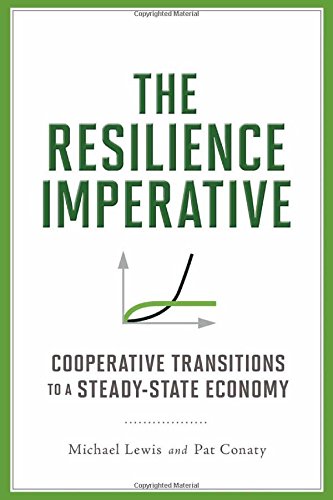

Most ebook files are in PDF format, so you can easily read them using various software such as Foxit Reader or directly on the Google Chrome browser.
Some ebook files are released by publishers in other formats such as .awz, .mobi, .epub, .fb2, etc. You may need to install specific software to read these formats on mobile/PC, such as Calibre.
Please read the tutorial at this link: https://ebookbell.com/faq
We offer FREE conversion to the popular formats you request; however, this may take some time. Therefore, right after payment, please email us, and we will try to provide the service as quickly as possible.
For some exceptional file formats or broken links (if any), please refrain from opening any disputes. Instead, email us first, and we will try to assist within a maximum of 6 hours.
EbookBell Team

4.3
88 reviewsWe find ourselves between a rock and a hot place—compelled by the intertwined forces of peak oil and climate change to reinvent our economic life at a much more local and regional scale. The Resilience Imperative argues for a major SEE (social, ecological, economic) change as a prerequisite for replacing the paradigm of limitless economic growth with a more decentralized, cooperative, steady-state economy.
The authors present a comprehensive series of strategic questions within the broad areas of:
Each section is complemented by case studies of pioneering community initiatives rounded out by a discussion of transition factors and resilience reflections.
With a focus on securing and sustaining change, this provocative book challenges deeply embedded cultural assumptions. Profoundly hopeful and inspiring, The Resilience Imperative affirms the possibilities of positive change as it is shaped by individuals, communities, and institutions learning to live within our ecological limits.
Michael Lewis is the executive director of the Center for Community Enterprise and is well-known internationally as a practitioner, author, educator, and leader in the field of community economic development.
Patrick Conaty is an honorary research fellow at the University of Birmingham and a director of Common Futures. Since 1999 he has worked for the new economics foundation (nef), where he has produced a wide range of publications about predatory lending, financial inclusion, community land trusts, and social venture finance.